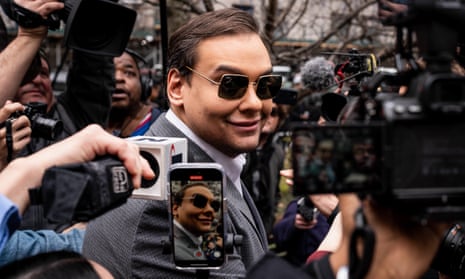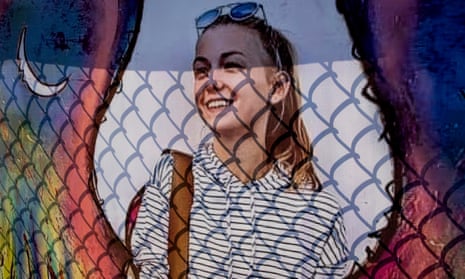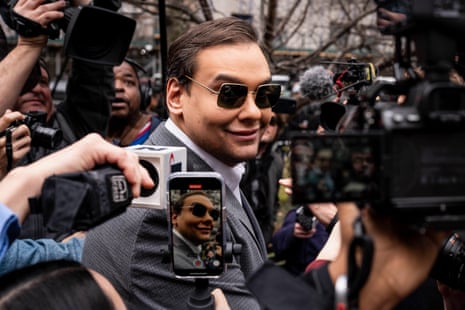Rolf Harris in 1960. Photo: Redferns
Somewhere in a parallel universe, a beloved child artist is remembered in a plethora of loving obituaries offered by admiring and affectionate fans. In the real world, the death of Rolf Harris evokes sadder and darker memories. Harris, one of the pillars of the early days of BBC children's television, a man who was part of millions of children in the 1960s and 1970s, has gone to his grave as a sex maniac. Its history spans the baby boomer generation; it is a story of lost innocence.
Rolf Harris, born in 1930 to Welsh parents who emigrated to Australia, was a charismatic and talented young man. He was a champion swimmer as a teenager, but had many other talents as well; he painted, he sang, he had a charming personality, and he came to Britain in the 1950s, a country on the brink of a TV revolution and hungry for new talent. This was the decade when televisions became ubiquitous; In a few short years, the “box” in the corner of the living room has gone from desirable to commonplace. And Rolf Harris had the combination of skills needed to use the new medium.
I was one of the millions of children for whom Rolf Harris was part of the usual television diet. His specialty was drawing witty cartoons on live television, which he did very skillfully. His screen persona was fun, enthusiastic, friendly, very Australian. To add to his stellar brilliance, he began to find real success as a performer of certain novelty songs, and at that time they sometimes became hits.
His breakout number was Tie Me Kangaroo Down, Sport (which says a lot about that time – we weren't sophisticated). He became a celebrity—an all-around artist, a face everyone knew—and over the next decades, in time-honored fashion, he became a national treasure. The final seal of approval came when he was given a place with the late queen so that he could paint her portrait.
This embrace from the establishment (he became a CBE in 2006) has strong parallels to the career of “Sir” Jimmy Savile, and it was Savile's posthumous downfall in 2012 that hastened Harris's own decline in status from revered to reviled. Savile's sexual predation, his vast depraved sexual appetites, were first made public in a 2012 ITV documentary, and these shocking revelations sped up a police investigation into what we would soon come to call “historic allegations of sexual abuse.”

In 2013, members of Operation Yutri, organized specifically to detect cases of sexual violence in the entertainment industry, were arrested. interrogated and ultimately charged Rolf Harris with 12 counts of indecent assaults on teenage girls. At a subsequent trial in 2014, he was found guilty and sentenced to five years and nine months in prison.
In the decades leading up to the revelation of the crimes of Savile and Harris, the country existed in a kind of pre-lapsarian innocence. Admittedly, in the 1990s priestly abuse in Ireland alerted us to the fact of child sexual abuse by trusted adults, so we were not completely unprepared; public opinion was turned to this issue. And as time went on and more cases came to light, one thing became more and more clear: sexual predators would be found wherever adults have privileged access to children or other vulnerable groups. Therefore, it is not surprising that some children's animators are pedophiles – they are attracted to this work precisely because it allows them to interact closely with children.
Both Savile and Harris were employees of the BBC; they owe their fame chiefly to the power that the corporation has always had, which is to make the chosen people stars. A pinch of BBC fairy dust can bring you fame and fortune, but since Savile's revelations, other BBC stars have found themselves in a different kind of spotlight. It turned out, for example, that Derek McCulloch, producer and host of the hugely popular Children's Hour radio show from the 1930s to the 1950s, was what we would now call a predatory pedophile.
 Rolf Harris rehearsing with the kids for the Australia Day concert, 1982. Photo: Getty
Rolf Harris rehearsing with the kids for the Australia Day concert, 1982. Photo: Getty
The source of this scandalous information was none other than John Simpson, who rose to the position of world editor of the BBC. Simpson recalled that when he was a young reporter, he was asked to prepare an obituary for McCulloch. While compiling it, he spoke to another veteran Children's Hour producer, Kathleen Garskadden, who told him: “Week after week, kids from all over the country were winning competitions to visit the BBC and meet 'Uncle Dick.' He met them, escorted them through the building, treated them to dinner, then took them to the gentlemen and interfered with them.
If their parents complain, they will write to the CEO's office and say that the nation will not understand such an accusation against a loved one.” Simpson later described the episode in his book Strange Places, Dubious People, where the identities were slightly disguised.
There were a few more people, and a picture of the BBC Light Entertainment department appeared, where some kind of creepy permissiveness seemed to be allowed . One commentator likened it to “Joe Orton crossed paths with the Marquis de Sade at the end of the pier, with several Union Jacks waving the stink.”
 Rolf Harris in 1960 by Redferns
Rolf Harris in 1960 by Redferns
In the ensuing decade, new allegations of the behavior of other stars came – some DJs fell under suspicion, but, as reprehensible as each case, the shock factor gradually decreased. First it was priests and teachers, then representatives of show business and politics, and now it is the police who expose the masks and demonstrate that the most terrible species of sexual predators are hiding in their ranks. There is hardly a British institution whose reputation has not been tarnished by a cascade of sex scandals over the past 30 years.
So where are we now? Once upon a time – as the anecdote above about the BBC's response to parents shows – these things were not talked about. This phrase “people won't understand” is probably the literal truth; many older people in the 1950s and 60s were simply unaware of certain sexual behaviors. Public debate on these issues had very strict boundaries; some things were simply not spoken about, and therefore the offenders were protected by the public code of omerta.
This approach is long gone, and now they talk about everything, sometimes even compulsively persecute. One consequence has been the emergence of “protection” rules that no organization that wants to maintain a good reputation can afford to ignore. Defensive thinking turns us all into potential abusers, and while it can be burdensome and unfair, if one case of child abuse has been prevented by protective measures, it has been worth it.
 Rolf Harris leaves Southwark Court in 2014. Photo: Reuters
Rolf Harris leaves Southwark Court in 2014. Photo: Reuters
Paradoxically, the new openness to sexual abuse, combined with a very unforgiving attitude towards pedophilia among the general public, went hand in hand with a new permissiveness in other respects; for example, now the country is flooded with pornography. It is said that the average age of a child's first exposure to hardcore pornography in Britain is 11 years old. Schoolchildren seem to exchange photos of their genitals quite often as part of a courtship ritual; dangerous sexual practices such as choking during sex are becoming mainstream.
The covert sexual crime of famous people such as Savile and Rolf Harris is almost unimaginable today; in the era of MeToo, it's hard to believe that any show business person could act with a sense of impunity. They only got away with it as long as the victims felt unable to speak out for fear of not being believed. And yet, at the same time, society is more saturated with deviant sexuality than ever before.
Over the past three decades, we as a society have lost our innocence and become much more lucid about child sexual abuse. But while we may be more vigilant of the dangers, according to the charity Internet Watch Foundation, there is an epidemic of child pornography on the Internet. The disturbing truth is that millions of people, mostly men, regularly witness child sexual abuse.
The story of Rolf Harris is shocking. What happened to him and Savile shows that the celebrity is no longer the protective shell she once was. But despite this new openness, we are no closer than ever to solving the problem of child sexual abuse. In a sense, the dangers have multiplied.





























































Recent Comments